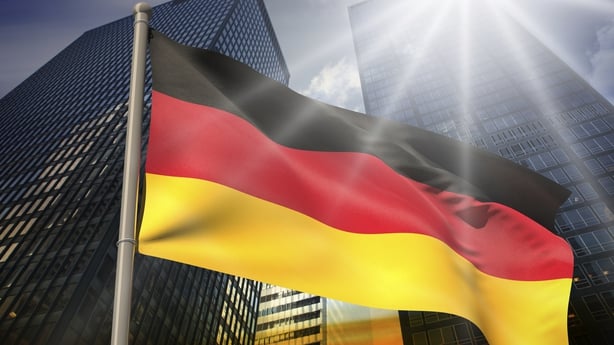The German central bank, or Bundesbank, has upgraded its growth forecasts for this year and next year, saying activity in Europe's biggest economy was being supported by both domestic and foreign demand.
The Bundesbank said in a statement it was expecting gross domestic product (GDP) to expand by 1.7% in 2015, by 1.8% in 2016 and 1.5% in 2017.
Previously, the central bank had been pencilling in growth of 1% for this year and 1.6% for next year.
"The German economy has recovered from the lull in mid-2014 more quickly than expected and has returned to a path of growth that is supported by both internal and external demand," the Bundesbank said.
"The domestic economy is notably reaping the benefits of the favourable labour market situation and substantial income growth. This is having an effect on private consumption as well as on housing construction," it wrote.
"Foreign business is currently burdened by dampening effects emanating from the global economy, but this is balanced out by the depreciation of the euro and the improving economic recovery in the euro area. Moreover, the global economy is likely to pick up steam again in the near future," the Bundesbank added.

In the first quarter of 2015, Germany's GDP increased by 0.3%.
This was a marked slowdown from the 0.7% growth achieved in late 2014, with foreign trade largely to blame.
For the second quarter, leading economic institutes expect the German economy to gain momentum with an predicted rise of around 0.5%.
Meanwhile, German industrial orders rose more sharply than expected in April with strong foreign demand outweighing a slip in domestic demand, data showed today.
Orders for goods made in Germany surged by 1.4% overall on the month, the strongest rise so far this year, data from the Economy Ministry showed today, beating expectations in a Reuters poll for a 0.5% rise.
The increase in April was driven mainly by a powerful upturn in demand from abroad, which jumped 5.5% on the month, led by orders from the euro zone, while domestic demand fell by 3.8%.
It was the biggest increase in foreign orders since July 2014.
"Additional stimulus can be expected from the upswing in the euro zone," the ministry said, adding that industrial production was likely to continue gaining momentum.
Demand for consumer goods in Germany soared by 4.5% on the month while demand for capital goods increased by 2.3%.
But the index for intermediate goods fell by 0.9%. In another positive sign, the March data was slightly revised upward to show an increase of 1.1% after a previously reported rise of just 0.9%.

